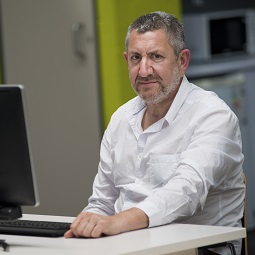The role of weather, climate and environmental factors in the spread of COVID-19

Tuesday, 28 July 2020 (Geneva) The World Meteorological Organization (WMO) and international science partners will be hosting a virtual global symposium from 4 to 6 August 2020 to review the relationship between weather, climate, and environmental factors and the spread of COVID-19.
Tuesday, 28 July 2020 (Geneva) The World Meteorological Organization (WMO) and international science partners will be hosting a virtual global symposium from 4 to 6 August 2020 to review the relationship between weather, climate, and environmental factors and the spread of COVID-19. South African scientists have played a leading role in organising this event, which will include opening remarks from the South African Ministers of Higher Education, Science and Innovation, Dr Blade Nzimande.
The Coronavirus pandemic continues to spread globally, within a wide range of climates and seasonal and environmental settings.
Environmental conditions are not the principal drivers of the first wave of the pandemic. Nonetheless, questions remain as to whether factors such as temperature, humidity, air quality, and ultraviolet light influence the spread of the SARS-CoV-2 virus and the disease (COVID-19) that it causes.
“It is critical to understand whether meteorological, climatological, and environmental factors promote the spread of the disease either outdoors or indoors. This is a pertinent scientific question that is the subject of numerous studies,” says Professor Jürg Luterbacher, WMO Chief Scientist and Director of Science and Innovation.
“COVID-19 is likely to be prevalent beyond the initial pandemic phase for several years. A better understanding of whether it will be influenced by seasonal environmental and weather conditions, as is the case with many other respiratory viruses and diseases, will help inform public health policy and management of the disease in the coming months and years,” says Dr Joy Shumake-Guillemot of the WMO/World Health Organization Joint Climate and Health Office.
The disease originally manifested in the Northern Hemisphere in early to mid-winter, in places with temperate climates, and spread east and west in an initially quite narrow climate band. This could reflect a climate sensitivity, but could just as plausibly reflect trade and human movement patterns.
Some countries currently facing the highest COVID-19 burdens are located in the tropics and subtropics. But there are also increasing case counts in some Southern Hemisphere countries as they move into winter. Whether this is a meteorologically driven phenomenon is yet to be determined. “This is relevant in South Africa, which is experiencing its peak of the epidemic in the region during the mid-winter season, at the same time that the typical influenza season peaks. Hence, the role that climate plays could be important, both at this time and in the winter season of 2021,” says Dr Neville Sweijd, convener of the COVID-19 Environmental Reference Group (CERG) and Director of the ACCESS programme. ACCESS is a research programme by the CSIR and the National Research Foundation. COVID-19 CERG comprises several experts from several local institutions, several of whom will be presenting their work on COVID-19 at the symposium.
Similarly, there are concerns about a resurgence in the next Northern Hemisphere winter, but these speculations are largely based on experience with other respiratory diseases, which peak in winter and not on a firm knowledge of COVID-19 climate sensitivities.
According to Professor Ben Zaitchik of John Hopkins University and chair of the symposium’s scientific committee, the e-symposium aims to create a forum to review and discuss existing studies in order to inform the state of knowledge that already exists and provide guidance for future research.
The symposium was initiated by a team of researchers from Johns Hopkins University, WMO and the ACCESS program in South Africa, and co-hosted by a wide range of scientific partners, including the American Geophysical Union, U.S. National Oceanic and Atmospheric Administration, World Council Research Programme, Swiss Federal Office of Meteorology and Climatology; National Weather Service and Hydrology in Peru, International Science Council, Elsevier, FutureEarth, GeoHealth Community of Practice, the Japan Agency for Marine-Earth Science and Technology and the Pacific Science Association. The scientific committee comprises several members from Africa, including Dr Neville Sweijd (ACCESS), Dr Joel Botai (South African Weather Service), Dr Jane Olwoch (Southern African Science Centre for Climate Change and Adaptive Land Management) and Professor Chris Brown (University of Ghana).
Approximately 500 participants will consider some 100 contributions on the topic from researchers from around 30 countries. There will be several keynote presentations, panels, and breakout sessions on understanding dynamics, forecasts, as well as projections and actionable information.
There will be a concluding statement on the outcomes and the future of research on this aspect of the COVID-19 pandemic. Symposium proceedings will be published by the Elsevier OneHealth journal.
The outcomes of the conference will also support the work of a newly established WMO Research Board Task Team on COVID-19 and climate and environmental factors, which will provide official scientific direction on the topic through 2021.
For further information, contact:
Joy Shumake-Guillemot
Email: JShumake-Guillemot@wmo.int
Or
Dr Neville Sweijd
Email: nsweijd@access.ac.za


